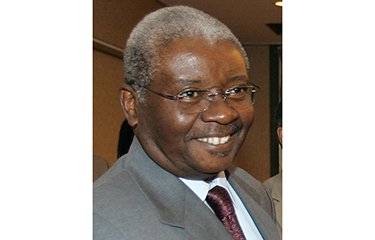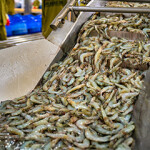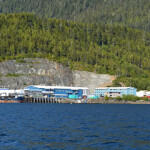Ex-president’s son jailed amid Mozambique's “hidden debt” scandal

An ongoing trial of suspects in the so-called “hidden debt” scandal in Mozambique reached a major milestone in early December when Ndambi Guebuza, son of former Mozambique President Armando Guebuza, was sentenced to 12 years in prison for taking a USD 33 million (EUR 31.3 million) bribe to perpetrate a corruption scheme involving the development of a tuna-fishing industry in the country.
Guebuza, together with 10 other people, were jailed on charges related to the corruption scandal, which plunged Mozambique into a protracted economic downturn, halving GDP growth from 7.7 percent between 2000 and 2016 to 3.3 percent from 2016 to 2019. A total of 19 defendants allegedly participated in the scandal, including two former intelligence service officials. The court set free eight of the defendants, while the rest were handed terms ranging between 10 and 12 years, Al Jazeera reported.
"The defendants tarnished the good image of the country abroad and in the international markets, with enduring and hard-to-repair effects," Judge Efigenio Baptista was quoted saying at the courtroom, on the grounds of a high-security jail in the country's capital of Maputo.
"The crimes committed have brought consequences whose effects will last for generations,” he added.
The "hidden debt" scandal involved state-owned companies illegally borrowing USD 2 billion (EUR 1.9 billion) in 2013 and 2014 from three major international banks to develop a tuna-fishing industry and buy surveillance vessels to police Mozambique’s 2,700-kilometer coastline.
Top government officials were accused of creating three state-owned companies between 2013 and 2014, which together took on more than USD 2 billion (EUR 1.9 billion) in debt, most of which was hidden from the public. The debt total was the equivalent of around 12 percent of Mozambique’s gross domestic product (GDP).
The companies that received the loans did end up building tuna vessels, but AllAfrica reported some of those boats have safety issues, and Reuters reported that 24 of the boats are “rusting in the harbor.”
Financing for the deal was arranged by three major banks – Credit Suisse, VTB, and BNP Paribas. Reports indicated nearly USD 1.3 billion (EUR 1.2 billion) of the financing was undisclosed to the public and banks until the deal was exposed by international media reporting in 2016.
After word of the massive debt spread, Mozambique’s foreign direct investment dried up when international investors lost confidence in the country's ability to pay them back. Additionally, "concessional lending from international financial institutions was far more limited, with official aid falling from 17.5 percent to 12.4 percent of GDP between 2013 and 2018,” according to the World Bank.
The government-backed “hidden loans,” were guaranteed without the approval of Mozambique parliament, as required by the country's law.
“These loans breached the International Monetary Fund program in place at the time, and the International Development Association’s non-concessional borrowing policy, resulting in the outright suspension of budget support by both institutions and other development partners,” World Bank said.
An independent audit of the "hidden loans" concluded in 2017 found Mozambique may have been exposed to fraud due to lack of due process under the country’s law.
Legal proceedings were initiated by Mozambique’s attorney general against several Mozambique officials for their alleged involvement in contracting the loans, while the U.K.'s financial supervisor pressed charges against the lending financial institutions involved in the scandal.
Photo courtesy of Wikimedia






Share